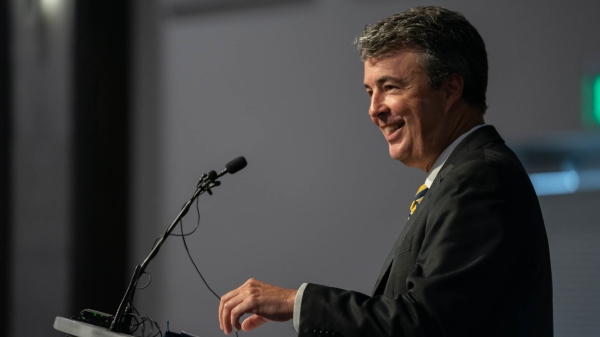|
Getting your Trinity Audio player ready...
|
A new Parole Watch Report by the ACLU of Alabama identified multiple trends that could be contributing to Alabama’s ongoing low parole grant rate.
The Parole Watch Team watched over 267 parole hearings from June to August. During this time the team documented the parole board members who opposed parole and why, who was the person being denied parole, how dangerous the individual actually was and how parole board members voted.
According to the report, over the ten-week period of the team observing parole hearings only 19 out of 267 individuals were granted parole. However, the Parole Watch Team also found trends that the report demonstrates are influencing parole decisions including racial disparities and the influence of Attorney General Steve Marshall’s office.
The trends determined include:
- “A majority of parole applicants (86.5 percent) assigned to work release facilities were denied parole even though they have been vetted by the Alabama Department of Corrections as people who can safely work in our communities. The Parole Watch team observed 74 parole hearings involving parole applicants assigned to work release facilities, and only ten were granted parole.
- The Attorney General’s Office and/or VOCAL opposed parole in at least three of every four (78.3 percent) parole hearings. Leigh Gwathney, the Parole Board Chair, followed the AG Office’s recommendation and voted to deny parole in 100 percent of the cases opposed by the AG’s Office.
- White applicants are more than twice as likely to be granted parole than Black applicants, even when Black and white parole applicants are similarly situated.”
Parole Board Chair Leigh Gwathney was a former member of the Attorney General’s Office prior to taking her position on the parole board. For most of 2023, the parole grant rate was at or below 5 percent because there were only two members for the majority of the year, Gwathney and board member Darryl Littleton.
After there was no third parole board member from January to March because of Dwayne Spurlock leaving, Kim Davidson was appointed to finish his remaining tenure. Davidson was on the board from April to June, which is when Spurlock’s term ended. In August, Gabrelle Simmons was appointed to be the third member of the board.
Rep. Chris England, D-Tuscaloosa, on Wednesday, took aim at the parole board due to it routinely denying parole to individuals who are recommended by the Alabama Department of Corrections (ADOC) as not being public safety risks. England’s reasoning was that the parole board denying parole was affecting prison overcrowding and creating issues for ADOC and keeping individuals in prison that the department itself deemed rehabilitated.
“For the last five years, state officials have lied to Alabamians about why our parole grant rates have fallen to record lows,” said Alison Mollman, interim legal director at the ACLU of Alabama. “The Parole Board’s decisions aren’t motivated by concerns for public safety. Their decisions are retributive, racially disparate, and prevent people who could safely and responsibly reenter society from returning to their families. It is time for the Parole Board to follow the law and their own guidelines. It is time for incarcerated Alabamians to come home.”





















































